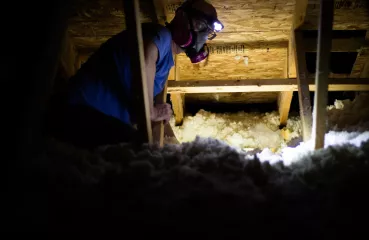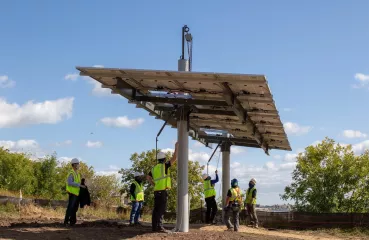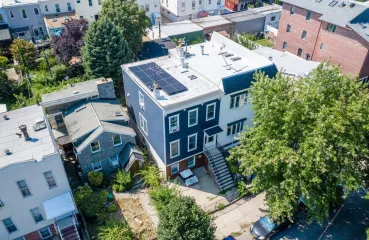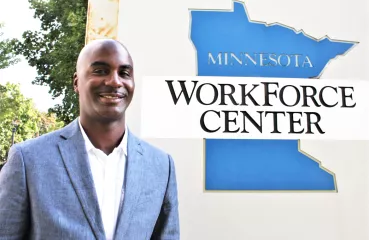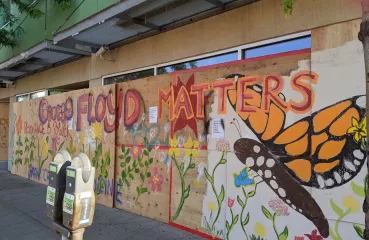Marie Donahue: You mentioned the COVID-19 pandemic and some of the changes that CUB has been making to adapt. I'm curious to dig into that some more and to see how you're feeling about clean energy in Minnesota in these times. We've had quite the year, and we continue to confront this pandemic, systemic racism, economic uncertainties, and other pressing challenges—even the winter ahead. How are you feeling and how are you thinking about your work in these times?
Carmen Carruthers: I think this is a really good question. As we've heard many, many times, these are just such unusual times, but I do think they have created an opportunity to talk about energy systems and the importance of clean energy in a new way. Because of what we've all gone through in the last year, I think people are able to see all these interrelationships between all these issues of the environment, systemic racism, and economic issues. It's more evident how all these things are interrelated when we're dealing with the issues we are.
I was recalling, when everyone first started staying at home in March to try to slow COVID-19 down, all the comments about how clean the air was, and how much people appreciated that and noticed that. So that was one piece of this—why clean energy matters. Granted, a lot of the pollution reduction was due to transportation. But again, this is still all interrelated.
After the civil unrest, we had early in the summer, the issues of equity came to the forefront. We can look at the economics of clean energy, notably wind and solar, which are so compelling. There’s this need to do as much as fast as we can and make sure everybody has the opportunity to participate. That's really important. We're hearing a lot of good things about how people are trying to make sure everyone can be part of this transition in a positive way, but it has to be done in a thoughtful deliberate way—or people will get left behind. There's still a lot of fear that the folks who have borne the brunt of the negative impacts won't get the full benefits of the clean energy transition. So, we're working really hard to try to make sure that those issues are addressed.
For over a year now, we've been involved in a project called the Energy Efficiency Peer Learning Cohort. And what that means is we got together with some other nonprofits. The Center for Earth Energy and Democracy, Community Power, and then the City of Minneapolis, plus about 10 community organizations. We went through this year-long process of digging into how and why the energy system was created the way it was, what have the impacts been of that, and what programs exist to help communities. These communities identify as being low-income, a lot of renters, Black, Indigenous, People of Color (BIPOC) communities. Understanding are their needs being met by the existing system and programs?


.png)




